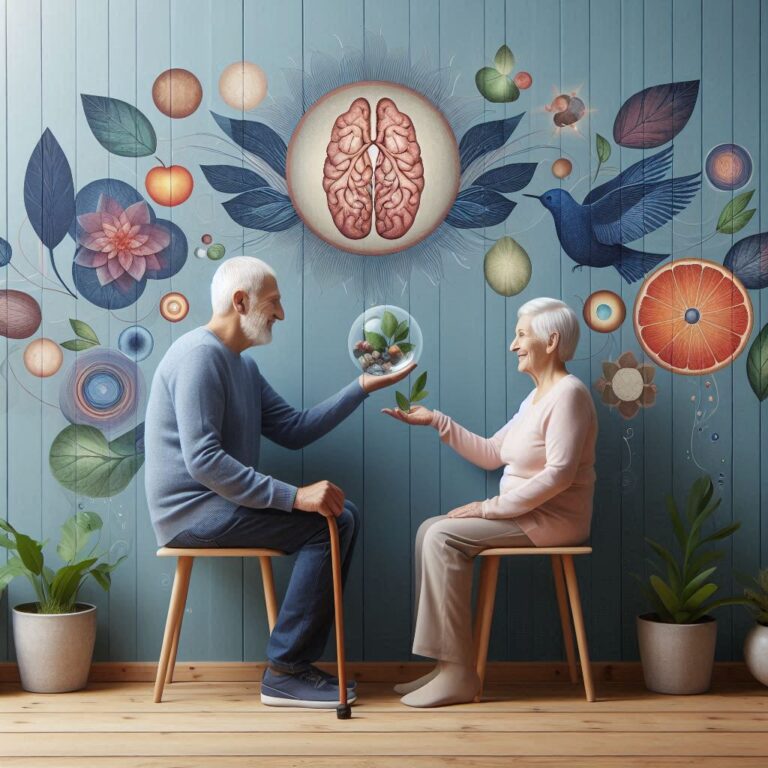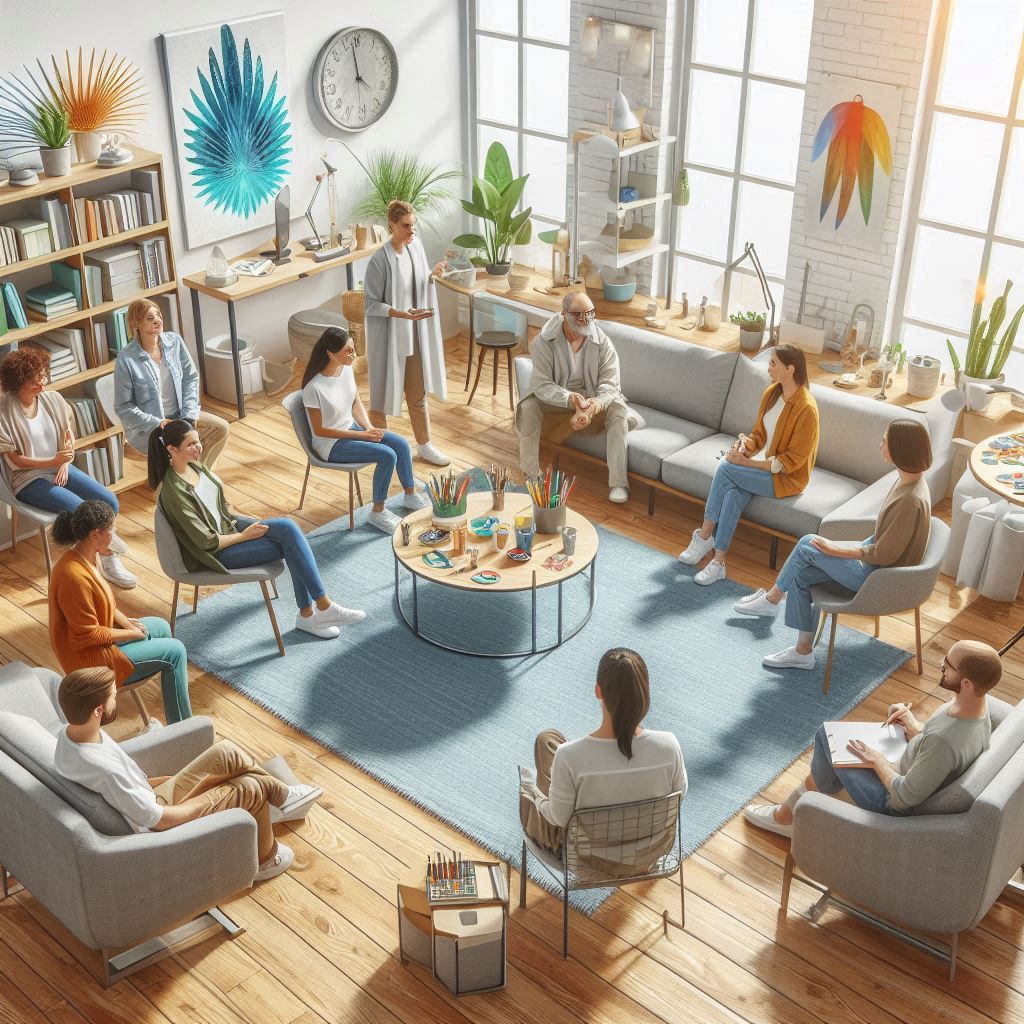Seniors’ mental wellbeing is a vital component of general well-being. People who become older can experience significant life changes like retirement, health issues, or the death of loved ones. These developments may affect their psychological and emotional state, so a thorough approach to mental health becomes even more crucial.
With helpful advice on key areas like social contacts, mindfulness, physical exercise, diet, and creative expression, this book investigates the overall techniques seniors, their families, and carers may use to enhance their mental well-being.
Recognising Senior Mental Health Wellbeing Issues
Seniors deal with unique mental health issues resulting from both emotional and physical changes. Common among ageing persons, depression and anxiety are sometimes aggravated by physical ailments, solitude, or loss of direction after retirement.
Diseases like Alzheimer’s or dementia directly influence cognitive capacity and emotional stability, therefore complicating mental health. Many seniors may not seek treatment despite these problems; sometimes this is due to stigma or the belief that depression or anxiety is a “normal” aspect of ageing.
Ensuring that seniors lead whole, meaningful lives depends on their awareness of and ability to manage their mental health issues. By thinking holistically, senior citizens and their carers may develop resilience, enhance emotional health, and handle psychiatric problems without depending only on medicine.
The Authority of Social Links
Human beings are naturally sociable animals; hence, the value of social ties for mental health is impossible to overestimate. Maintaining relationships with friends, relatives, and community groups helps seniors remain connected and feel strongly connected, which helps lessen their loneliness.
Encouragement of seniors to keep or expand their social networks might include matching them with nearby senior centres where they could engage in group events, courses, or trips. Virtual technologies such as video conferences and social media are particularly effective means of maintaining ties, particularly for people who may be homebound.
Group events, including reading clubs, interest groups, or conversational circles, help create significant emotional involvement and connection.
Family members and carers may help reduce social isolation by planning frequent visits, motivating participation in community activities, or matching seniors to volunteer opportunities that fit their interests. Little gestures like a phone call or a shared coffee date significantly improve a senior’s mood.
The Function of Conscious Activities
Mindfulness offers excellent advantages for elders, the young, and the active. By using meditation and relaxation methods, older persons may control stress, lower anxiety, and increase their general mental clarity.
For many elders, simple breathing exercises provide a reasonable beginning point. For instance, sitting comfortably and spending five minutes practicing deep, focused breaths might help one turn their attention from concerns and create peace.
Guided meditation, readily available via mobile applications or YouTube, provides step-by-step directions to help elders centre themselves and lower restlessness.
Another aware exercise combining gentle movement with focused breathing is yoga. Chair yoga and other programmes catered for senior citizens may provide physical and psychological advantages without demanding great physical effort. Practicing mindfulness need not be complicated; it may be as simple as noting three things to be thankful for at the end of the day.

Exercise for Mental Health
Regular physical exercise is a proven approach to improving mental health, and it’s just as significant for seniors as it is for younger people. Exercise releases endorphins—the body’s natural “feel-good” chemicals—which lower stress and improve happiness.
For seniors, the emphasis is on low-impact, mild exercises that, without too much effort, support balance, flexibility, and cardiovascular health.
Walking is among the easiest but most potent workouts for general health. Apart from encouraging physical activity, a consistent walk in the park exposes one to nature, which is believed to have relaxing benefits.
Other mild choices include Tai Chi, water aerobics, or stretching exercises for elderly persons. Senior-specific classes provide a secure exercise environment and help create social connections.
Additionally, physical exercise can help cognitive wellness. Studies find that by increasing blood flow to the brain, exercise helps memory and lowers the risk of cognitive decline. Whether gardening, riding, or dancing, carers may inspire seniors to include movement in everyday activities.
Dietary Support for Optimal Brain Function
Senior eating dramatically affects their mental state. Brain function is greatly influenced by nutrition, so including the correct foods in one’s diet might provide a natural approach to fighting stress, anxiety, and cognitive decline.
Foods high in antioxidants, like kale, blueberries, and spinach, lower oxidative stress that fuels ageing. Omega-3 fatty acids, found in seafood like salmon and mackerel, are vital for brain function and could help lower depression symptoms.
Like quinoa and oats, whole grains provide a consistent flow of energy that supports mood maintenance and helps avoid irritation.
Water is also essential, as slight dehydration may influence mood and focus. To maintain steady blood sugar levels connected to emotional stability, seniors should also concentrate on eating smaller, balanced meals all day.
Urge relatives and carers to prepare wholesome meals together. In addition to guaranteeing a good diet, this may be a pleasant, community-building exercise.
Therapeutic Outlet for Creative Expression
Participating in creative activities gives seniors a means of expressing their feelings, building confidence, and seeking enjoyment. Older persons may explore their creativity through art therapy, music therapy, and writing, which are potent instruments that help reduce stress.
Art therapy offers cognitive stimulation and transforms emotional energy into painting, drawing, or handicap. Seniors who find it challenging to communicate their emotions might find visual art a more approachable form of communication. Similar benefits come from music therapy; listening to preferred songs or playing basic instruments may set off happy memories and help mood.
Writing invites self-examination, whether via journaling or narrative. Seniors might help themselves process emotions and feel successful by regularly journaling ideas, objectives, or thank-you lists. Stronger intergenerational ties and family history preservation may also result from shared storytelling events among friends or relatives.
Encourage Older People to Own Their Mental Health
Mental health is not a luxury but rather a need, particularly for seniors trying to age with grace, dignity, and pleasure. Concentrating on all-encompassing strategies, including social engagement, mindfulness, physical exercise, proper diet, and creative expression, may significantly improve their emotional and psychological health.
Encouragement and support of these ideas depend heavily on family members and carers. Small, regular actions towards mental well-being may make all the difference for a senior’s quality of life.
Conclusion
If you are a family member or carer seeking more direction, review our other materials or speak with mental health experts focused on elder care. In their elderly years, together we can lead better, more fulfilled lives for everyone.
Senior citizens who prioritize mental health and follow comprehensive plans will have better general well-being, connection, and purpose throughout their later years. Little, deliberate actions like developing deep connections, being physically active, and using mindfulness may significantly impact. Promoting these behaviours helps elders and improves the links in families and communities, guaranteeing a better, more caring future for everybody.





